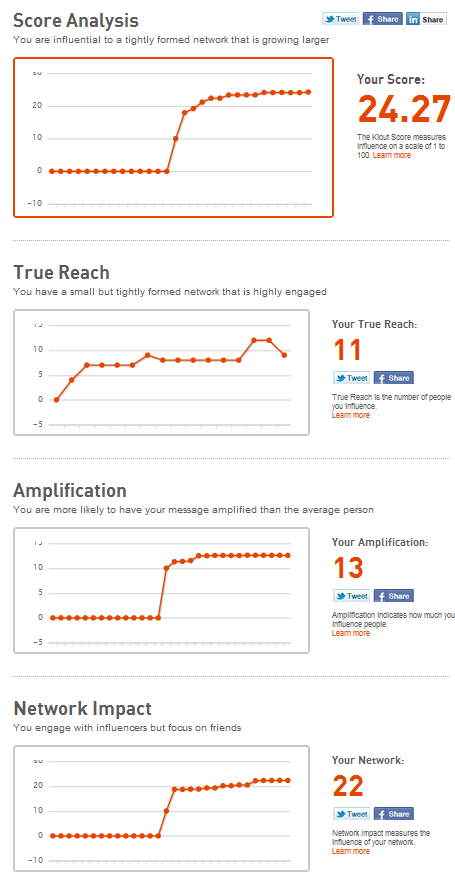 Often, I hear from people who complain that social media doesn’t do anything for their “marketing” efforts. Well, for one, social media users — that is, users on social news sites such as Digg, Mixx, Reddit — are not particularly enthusiastic about the proliferation of marketers in their community. This is a huge challenge for someone who wants to sell their product using social media.
Often, I hear from people who complain that social media doesn’t do anything for their “marketing” efforts. Well, for one, social media users — that is, users on social news sites such as Digg, Mixx, Reddit — are not particularly enthusiastic about the proliferation of marketers in their community. This is a huge challenge for someone who wants to sell their product using social media.
But there’s a lot more to media than just these social networking sites. In fact, a highly underappreciated but heavily trafficked method works just as well: the blog.
If you get your product name out among many blogs, eventually, the word gets out. This shouldn’t come as a surprise. In any marketing campaign, the more you see the product, the more likely you are to be influenced by it, even if you don’t want to be. The takeaway: if you talk about something enough, people will listen (even if they don’t want to). Repeated exposure builds recognition.
Let’s take a look at an incredible program that worked quite well in the past few months: Yaro Starak’s Blog Profits Blueprint program. If you’ve studied a social site like Digg long enough, you’d know that the users there are receptive to blogging but not necessarily blog monetization or paid-services. Therefore, instead of using social news outlets, the Blog Profits Blueprint program became successful because multiple influencers promoted it, including Problogger Darren Rowse. And Yaro Starak’s program has been much of a success because it targeted the right people through the right channels. Yaro explains:
My membership site, BlogMastermind.com, certainly benefited from word of mouth and viral marketing across the blogosphere. It began thanks to endorsement by top bloggers in my industry and carried through by the quality of the information I provided in the Blog Profits Blueprint. When you have leading figures recommending something and then people benefiting from what you offer, the natural result is viral traffic growth. Without these ingredients I would not have been able to launch a six figure business after a month long product launch.
Another well-known individual who utilized the blogosphere efficiently in his marketing efforts is 29-year-old Tim Ferriss. Tim is the author of The Four Hour Workweek, a bestseller about the mobile lifestyle. His book has been the topic of conversation just about everywhere, and for good reason. Tim makes a bold statement that you should work as little as possible and follow your passions. In fact, that’s exactly what one twenty-one year-old did as seen in this video:
Tim credits his success to the blogosphere. When asked for comment, Ferriss said:
The 4-Hour Workweek was turned down by 13 out of 14 publishers. Reaching out to bloggers and online communities, it hit both the NY Times and Wall Street Journal in the first week of publication. Learning how to navigate the most efficient word-of-mouth networks in history isn’t just one option — it’s THE option — for the lone individual who needs a megaphone to spread the word. It builds a momentum impossible through traditional advertising. The 4-Hour Workweek has been on the lists for 7 months straight and is now going to be in more than 25 languages. Social media is the new game in town.
Indeed, by networking properly and targeting the people within your niche, you can certainly find people who will talk about your product and can give your sales an incredible boost.
Does social media convert? Well, it did for these guys, though it took careful deliberation and understanding the social network (in this case, the blogosphere) to see where content could be most successful. What’s holding you back?





What I come across constantly are online marketers who simple use and abuse social media sites using the same language and techniques as works elsewhere.
Doesn’t work, they can sniff you out instantly. Take the zombie apocalypse scenario. You are surrounded by ravenous, you’ve used your last shotgun shell on your Mums best mate and your hatchet is now stuck in the postmans head. So you try to walk and talk like a zombie, yeah you’ll fool some of them but eventually you will be sniffed out and find your bank manager gnawing on the stumps that were your legs.
Don’t be a marketer, when interacting with social media sites, be your self, have an authentic voice. Don’t try to sell and like the above successes, find your own way through the maze. Develop a strategy that is yours and cannot be challenged.
And absolutely do not have the slightest odour of spam about you.
You market, by not marketing.
Very inspiring video you found there Tamar. Makes me even more glad I gave up on my engineering career 🙂
“You market, by not marketing.”
Excellent point.
I think I was sold on the Macbook not because Apple had its commercials (which are clever, but I always neglected them) but because people were ALWAYS talking about it. I don’t yet own a Macbook, but it’s undoubtedly going to be my next laptop purchase. In October, I subscribed to 5-6 new Apple blogs, and it was for no other reason but to prepare myself for a Macbook investment. These blogs delivered what I wanted, and I subscribed because in the end, I wanted to hear about it — even though I ignored it for such a long time.
You bet social media converts! I do SEO work and social media consulting (which is probably far more disliked than “products” by the average social media user), but I would say that 85% or more of my clients found me through some kind of link, bookmark or recommendation from someone who read one my blog posts on a social media site. My favorite example was when I got a story from my site on Digg and this guy wrote me to scold me for how stereotypical and incorrect my article was and how he totally disagreed, but then asked if I would put the personal differences behind us and build him a website.
I haven’t put a lot of effort into my blog, only it updating once or twice a month, but it has been the most valuable marketing toolkit in my arsenal. Thanks to my blog, I know that I can quit my corporate job and make all the connections I need to!
Arrgh… Tamar, you quoted the comment I was going to quote! That’s so critical to social media exposure, and to blogging, I believe, to “market, by not marketing.” The thing is, a person who is a die-hard internet marketer, for some reason, thinks that they can bring that same bash-them-in-the-head attitude to any community and that eventually the people there will turn into sheep and cry uncle.
But the social media movement is the anti-thesis of the sheep era in so many ways… even when everyone is learning towards one voice, they’re Choosing to, not just accepting what’s being put before them. You can therefore not market to a crowd that is inoculated against marketing. Instead you have to find a community that is a good fit with you and join it, becoming one of them.
Compelling post and argument, Tamar! Makes me rethink my marketing strategy and happy I gave up on my engineering career…
…well moreso biology, than engineering
Eugene Schwartz, the guy who was paid more than 250.000$ for a single sales-letter he wrote, often says:
– Be simple: talk to the chimpanzee brain ; that is talk to people’s desires. Give images, people buy on an (animal) impulse.
– Don’t create a need, create a solution for a need: Do not think that because your car is totally electronic driven that people will by it. People buy cars depending on things that help them, make them make economies, answer a need.
– Your sales letter is the bridge between your product and the client, and the very first part of this slaes letter has more than 80% of the whole importance: your HEADLINE.
There’s a lot, really a wealth, to learn from copywriters, especially those from the past century 🙂
Just went and bought the book…super stoked to read it. The Borders lady said it’s the “Guy Book”. She says that just about every guy swears by it…must be good. Thanks, Tamar!
I’m a girl and I bought it, so I wonder what that means. 😉
A blog IS social media but it seems necessary to keep “blogs” distinctive from “social media sites”. The reason I say that is because both are effective for networking and marketing purposes. The challenge really is in where and how to utilize them.
We classify blog and social media marketing in to 2 distinct types:
1. SEO
2. Relational Marketing
SEO, specifically in the form of RSS Marketing is effective on blogs and social media sites, but some online communities do not permit it so you just can’t go there. And sometimes blogging for SEO is frowned upon.
Relational Marketing is the term we use for doing exactly what has been suggested here, to “market without marketing”.
Hey Tamar – On the right track with going for a MacBook. I bought mine last year. Phenomenal companion.
I appreciate immersive marketing strategies. Personally I am much more likely to further investigate a product/company/service that was brought to my attention indirectly than say, on a billboard or full-page magazine ad. Society is used to ignoring billboards and magazine ads, but finding information about a company wedged in a larger context that I’m already engaged is intriguing. There is a lot of value to be gained from a company who isn’t afraid to converse with the public and let their consumers know they are listening, and perhaps, even caring. Blogs do just that. By the way, since we’re on the subject, this is a good one for relevant marketing strategies and tips 😉